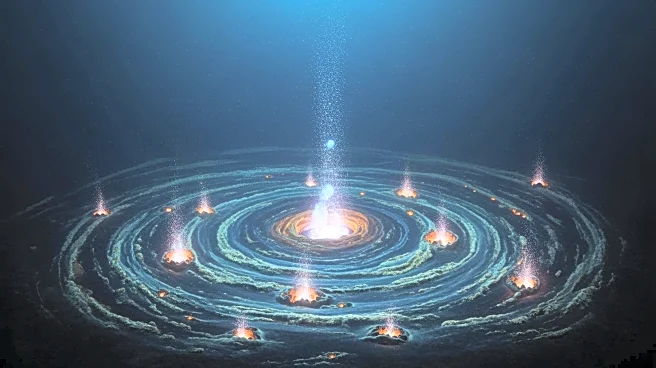What's Happening?
A recent study published in the Journal of the American Chemical Society suggests that hydrothermal vents in the ocean may have played a crucial role in the formation of life's molecular precursors. Researchers
recreated primitive Earth conditions in a lab, simulating the environment of these vents, which existed around 4 billion years ago. The study found that natural gradients, rather than enzymes, could drive the first chemical reactions necessary for life. This supports the theory that protometabolism, a precursor to life, could have originated without the need for a 'primordial soup.'
Why It's Important?
The study provides significant insights into the origins of life on Earth, challenging traditional theories that rely on complex organic molecules and enzymes. By demonstrating that simple inorganic chemistry could drive early biochemical reactions, the research suggests that life could have emerged in environments previously considered inhospitable. This has implications for the search for life on other planets, as similar conditions may exist elsewhere in the universe. The findings also bridge the gap between geology and biology, highlighting the role of natural energy sources in the development of early life forms.
What's Next?
Future research will likely focus on exploring other potential environments where similar conditions could have existed, both on Earth and on other planets. Scientists may also investigate the role of different minerals and environmental factors in the formation of life's building blocks. The study's findings could lead to new approaches in the search for extraterrestrial life, as researchers look for planets with conditions similar to those of early Earth.








